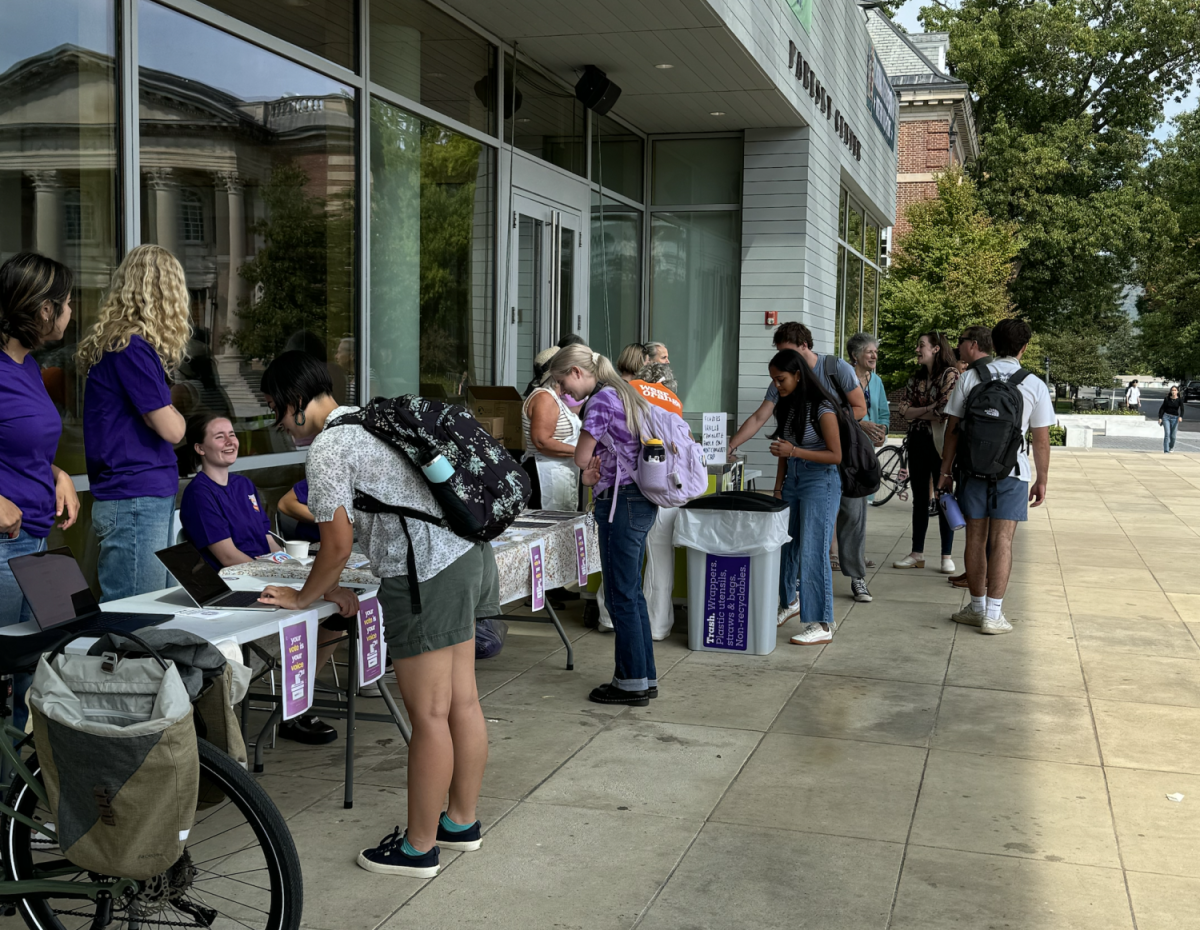Last spring, nearly one-fifth of the College’s student body responded to a survey conducted by EphVotes, a nonpartisan voter outreach group on campus, about their voting habits, attitudes toward civic engagement, and intentions to vote in the U.S. elections on Nov. 5. While the results indicated high levels of voter registration among the student body, they also revealed an undercurrent of distrust in the American political system.
The survey demonstrated that the desire for civic engagement is relatively high at the College: Ninety percent of respondents said they were registered to vote as of April 2024, and 92 percent planned to cast their ballot for President Joe Biden, former President Donald Trump, or a third-party candidate.
Students said they were less likely, however, to participate in politics beyond the upcoming presidential election. In response the question “Did you (or do you plan to) vote in this year’s presidential primaries?” only 61 percent of those surveyed indicated an intent to do so. And for the following question, which asked, “What about local elections?” only 58 percent said they were interested in voting for local and state officials, such as mayor, governor, or school board members.
Many respondents shared a sense of frustration with the American political system. One student said that they felt forced to choose between the “lesser of two evils,” while several others wrote that they believed their individual votes “did not matter” in heavily Republican- or Democrat-leaning states.
Granted, such responses were made before Vice President Kamala Harris replaced Biden on the Democratic Party’s presidential ticket, but this sense of disenfranchisement and political apathy remains deeply worrying. Young people have very few ways to transform the political landscape outside of voting. We are less able to run for and hold political office and less likely to influence the political arena, yet we are more vulnerable to economic and social changes that administrations enact, both at the local and national level.
Choosing to vote — especially at the local level — is one of the best ways young people can assert our power within the political system.
In addition to presidential and congressional elections, many ballot initiatives and local positions will be decided on Nov. 5. With positions ranging from school board members to governors, these elections will impact our communities.
Particularly at the local level, the opinions and actions of individuals have an enormous amount of pull with politicians, and with fewer voters, each vote holds more weight. These races can be decided by incredibly tight margins: It is not uncommon for state senators and representatives to win or lose powerful local positions by 50, 20, or even 10 votes.
To encourage voter turnout up and down the ballot, EphVotes will be hosting a speakers series titled “Voting Matters” in partnership with the Center for Learning in Action this fall. Vote.org also allows you to check your voter registration status and register in less than three minutes, and for those looking to vote absentee, the site also has resources to vote by mail.
As Abraham Lincoln once said, “Elections belong to the people. It’s their decision. If they decide to turn their back on the fire and burn their behinds, then they will just have to sit on their blisters.”
Our democratic system of government depends on our active participation. Let’s vote like it.
Jessica Kim ’27 is from Boston. She is the vice president of EphVotes, a nonpartisan voter outreach group.
[Editor’s note: Lena Kerest, an executive editor for the Record, is the president of EphVotes.]





